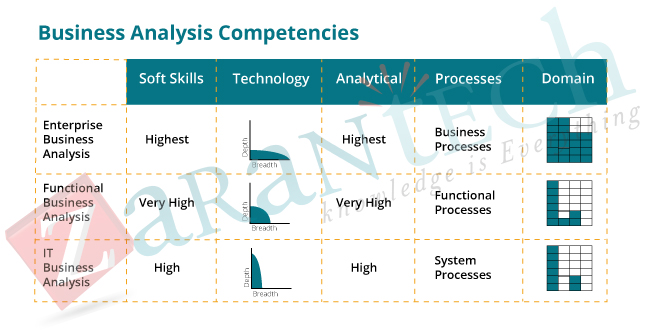Domain Knowledge for Business Analysts
Business analysts play a crucial role in helping organizations make informed decisions and strategize for the future. One important skill that sets top business analysts apart is their domain knowledge.
Domain knowledge refers to a deep understanding of a specific industry or business area. It encompasses the unique terminology, trends, challenges, and opportunities within that domain. For a business analyst, having strong domain knowledge is essential for effectively analyzing data, identifying business needs, and providing valuable insights.
So, why is domain knowledge important for business analysts?
- Improved Data Analysis: When a business analyst has a strong understanding of the domain they are working in, they can more accurately interpret and analyze data. This allows them to uncover trends, patterns, and insights that may not be apparent to someone without domain knowledge.
- Effective Communication: Domain knowledge enables business analysts to communicate effectively with stakeholders, team members, and subject matter experts. They can ask relevant questions, understand complex concepts, and bridge the gap between technical and non-technical individuals.
- Better Problem-Solving: Business analysts with domain knowledge are better equipped to identify and solve business problems. They can quickly assess the impact of potential solutions, make informed recommendations, and drive positive change within an organization.
- Strategic Planning: Domain knowledge allows business analysts to align their work with the strategic goals of the organization. By understanding industry trends, competitive dynamics, and market forces, they can help shape long-term strategies and drive business growth.
How can business analysts develop domain knowledge?
- Research: Stay up-to-date on industry news, reports, and publications. Attend conferences, seminars, and networking events to learn from industry experts and peers.
- On-the-Job Experience: Take on projects and assignments that allow you to gain hands-on experience in your domain. Collaborate with colleagues, mentors, and clients to deepen your understanding of industry-specific challenges and opportunities.
- Continuous Learning: Enroll in specialized courses, workshops, and certifications to enhance your domain knowledge. Seek feedback and guidance from experienced professionals to accelerate your learning curve.
Ultimately, domain knowledge is a powerful asset for business analysts looking to excel in their roles. By developing a deep understanding of the industries they work in, business analysts can deliver actionable insights, drive informed decision-making, and add tangible value to their organizations.
